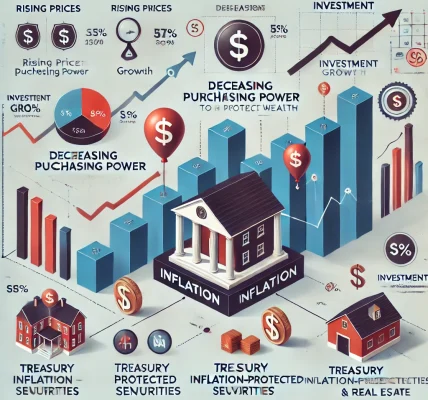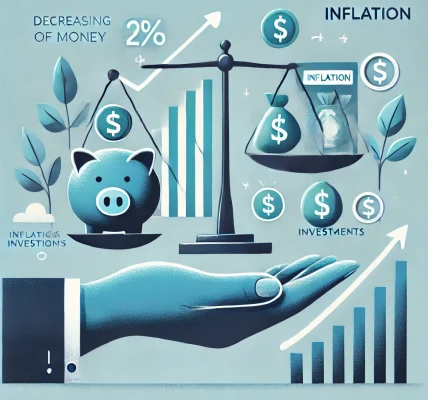Financial planning is essential for managing income, expenses, and investments efficiently. One of the most crucial aspects of financial planning is budgeting, which helps individuals and families control their spending, save money, and achieve financial goals. Fortunately, several budgeting tools are available today that simplify financial planning and make money management more effective.
In this blog, we will explore the best budgeting tools that can help you track your finances, optimize spending, and plan for the future.
Why Budgeting Tools Matter in Financial Planning?
Budgeting tools help you analyze, categorize, and monitor your finances in real-time. Whether you are looking to pay off debt, save for retirement, or invest smartly, these tools provide clear insights into your spending habits and financial health.
Key Benefits of Using Budgeting Tools:
✅ Helps track income and expenses ✅ Identifies unnecessary spending ✅ Assists in setting financial goals ✅ Encourages savings and investments ✅ Provides financial security and peace of mind
Top Budgeting Tools for Effective Financial Planning
Here are some of the best budgeting tools available today that can help improve your financial management:
1. Mint
Best for: Overall budgeting and expense tracking
Mint is a free and widely used budgeting tool that connects to your bank accounts, credit cards, and investment accounts to track your financial activity. It categorizes expenses, alerts you of upcoming bills, and provides insightful reports.
🔹 Features:
- Automatic expense categorization
- Bill reminders and alerts
- Credit score monitoring
- Personalized budgeting tips
🔹 Pricing: Free
2. YNAB (You Need a Budget)
Best for: Hands-on budgeting and debt payoff
YNAB follows a zero-based budgeting system, ensuring every dollar has a job. This tool helps users break the paycheck-to-paycheck cycle and encourages proactive financial planning.
🔹 Features:
- Goal setting and expense tracking
- Bank synchronization
- Debt repayment strategies
- Educational resources and workshops
🔹 Pricing: $14.99/month or $98.99/year (34-day free trial)
3. Personal Capital
Best for: Budgeting & Investment Planning
Personal Capital is a great tool for those who want to go beyond basic budgeting and focus on wealth management and investments.
🔹 Features:
- Investment portfolio analysis
- Net worth tracking
- Retirement planning tools
- Cash flow management
🔹 Pricing: Free basic version; Wealth management service fees apply
4. PocketGuard
Best for: Preventing overspending
PocketGuard helps users avoid overspending by showing how much money they have left after covering bills and savings goals. It automatically categorizes expenses and offers money-saving tips.
🔹 Features:
- “In My Pocket” feature to track spending
- Bill negotiation tools
- Subscription monitoring
- Automatic savings feature
🔹 Pricing: Free basic version; $7.99/month for premium
5. GoodBudget
Best for: Envelope-style budgeting
GoodBudget uses the envelope budgeting system, where users allocate funds to different spending categories. It is perfect for couples or families who want to budget together.
🔹 Features:
- Manual transaction tracking
- Shared budgeting (great for couples)
- Debt tracking and savings goals
- Mobile and web access
🔹 Pricing: Free basic version; $8/month for premium
6. EveryDollar
Best for: Simple and effective budgeting
EveryDollar, developed by financial expert Dave Ramsey, is ideal for those who want a straightforward budgeting tool that aligns with the zero-based budgeting method.
🔹 Features:
- Monthly budgeting templates
- Expense tracking
- Debt snowball method integration
- Syncs with bank accounts (Premium version)
🔹 Pricing: Free basic version; $12.99/month for premium
7. Zeta
Best for: Couples and families
Zeta is a budgeting tool designed specifically for couples and families, helping them manage joint and individual expenses while improving financial communication.
🔹 Features:
- Joint and personal budget tracking
- Bill splitting and payment reminders
- Shared financial goals
- Cash flow analysis
🔹 Pricing: Free
How to Choose the Right Budgeting Tool?
To select the best budgeting tool for your needs, consider the following factors:
- Your Financial Goals – Do you want to save, invest, or reduce debt?
- Ease of Use – Choose a tool with an intuitive interface.
- Automation Features – Some tools offer auto-categorization and real-time updates.
- Compatibility – Ensure it syncs with your bank and financial accounts.
- Cost – Free tools work well for many users, but premium versions offer advanced features.
Final Thoughts
Budgeting tools play a vital role in achieving financial stability, savings goals, and overall wealth management. Whether you’re new to budgeting or looking for advanced features like investment tracking, there’s a perfect tool out there for you.
✅ If you want a free and easy-to-use tool, go for Mint or PocketGuard. ✅ If you prefer detailed hands-on budgeting, YNAB or EveryDollar are great options. ✅ For those interested in investment planning, Personal Capital is a top choice. ✅ If you need family or couple-based budgeting, Zeta or GoodBudget are ideal.
No matter which tool you choose, the key to successful financial planning is consistency. Stick to your budget, track your expenses, and make adjustments as needed to stay on top of your financial goals.
Disclaimer:
This article is for informational purposes only and does not constitute financial or legal advice. Always research and consult a professional financial advisor before making financial decisions.




